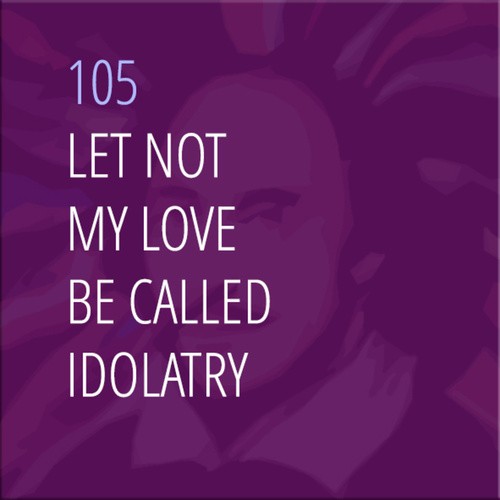
Sonnet 105: Let Not My Love Be Called Idolatry
SONNETCAST – William Shakespeare's Sonnets Recited, Revealed, Relived
Episode · 0 Play
Episode · 24:49 · Nov 3, 2024
About
Sonnet 105 presents a playful paradox that is no doubt fully intended on William Shakespeare's part. Addressing, for a change, not his young lover directly, but speaking to the world in general about him and about his love for him, he tells us that we should not see, and in seeing so by implication judge, this love as the worship of a human and therefore by necessity false god, and then proceeds to deify this same object of his love in terms that – in a culture of immensely powerful religious strictures – comes scandalously close to sacrilege by effectively calling him 'the one and only' and investing him with qualities that prompt immediate comparisons to the holy Trinity.
24m 49s · Nov 3, 2024
© 2024 Podcaster